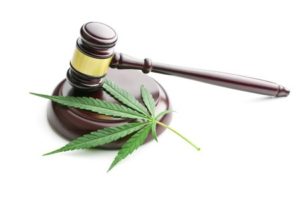 Medical marijuana patients have many new rules and responsibilities that they should know about before using the drug as a treatment. For instance, CUMMA has certain regulations regarding the proper transportation of the drug and prohibits a patient from operating a vehicle while under the influence of the drug. Some patients would think that due to the fact that the drug has been prescribed to them as a medication, they can transport and use the drug while driving like many other medications. However, this is not the case when dealing with medical marijuana. Here are a few things that medical marijuana patients should know regarding their rights when transporting medical marijuana in their vehicle.
Medical marijuana patients have many new rules and responsibilities that they should know about before using the drug as a treatment. For instance, CUMMA has certain regulations regarding the proper transportation of the drug and prohibits a patient from operating a vehicle while under the influence of the drug. Some patients would think that due to the fact that the drug has been prescribed to them as a medication, they can transport and use the drug while driving like many other medications. However, this is not the case when dealing with medical marijuana. Here are a few things that medical marijuana patients should know regarding their rights when transporting medical marijuana in their vehicle.
- If you are a registered medical marijuana patient, you can be found guilty of operating a vehicle while under the influence of marijuana.
- Patients can be found guilty of marijuana possession and possession of a controlled substance in a motor vehicle if they are found to be in possession of black market marijuana that was not obtained from a licensed alternative treatment center (ATC).
- Registered patients of medical marijuana can legally transport an open container of medical marijuana in a vehicle, however, it is suggested that patients store the open container in their trunk while transporting the drug. This will prevent an officer from being suspicious of the possibility that the driver was under the influence of the drug while operating the vehicle.
- Police officers cannot confiscate medical marijuana from a registered patient unless it is confiscated as evidence if a drug recognition expert (DRE) feels that the patient was under the influence while operating the vehicle.
- In the event that a patient is arrested for operating a vehicle under the influence of marijuana and had his/her medical marijuana confiscated but was found not guilty of the offense, then the state is required to return all confiscated materials back to the defendant.
You can see the full section of CUMMA regarding this issue below:
1. Seizure of Unconsumed Medical Marijuana in Vehicle as Evidence of Intoxication
Although a defendant who uses or is under the influence of medical marijuana while operating a vehicle may properly be charged and prosecuted for violation of both N.J.S.A. 39:4-50 and subsection (b) of N.J.S.A. 2C:35-10, he or she may still be able to successfully assert a CUMMA affirmative defense if he or she were also to be charged with the actual or constructive possession of unconsumed marijuana that may have been present in the vehicle or vessel. In other words, a defendant may assert an affirmative defense to a charged violation of subsection (a) of N.J.S.A. 2C:35-10, or to a violation of N.J.S.A. 39:4-49.1 (possessing drugs in a motor vehicle), notwithstanding that he or she had illegally used some of that medical marijuana by virtue of having operated the vehicle or vessel while under the influence. To the extent that the CUMMA affirmative defense may apply to the unconsumed medical marijuana present in the vehicle or vessel, that marijuana or associated paraphernalia should not be treated as contraband per se, and, pursuant to the general policy set forth in these Guidelines, a police officer should ordinarily refrain from seizing such medical marijuana or paraphernalia.
It is important to note, however, that in certain circumstances, even bona fide medical marijuana or marijuana-related paraphernalia found on the person or in the vehicle or vessel may be seized as relevant and admissible evidence in a prosecution, not asper se contraband ( i.e., the direct evidence of a possessory marijuana offense), but rather as physical evidence to help prove a material element of the vehicle/vessel operation-related offense. For example, the presence of an opened package of medical marijuana and/or recently-used marijuana paraphernalia may be relevant in proving that the operator of the vehicle or vessel had recently consumed marijuana and thus was under the influence of some “narcotic, hallucinogenic or habit-producing drug” within the meaning of N.J.S.A. 39:4-50 at the time of the vehicle/vessel’s operation.6 Such physical evidence is especially likely to be relevant to the State’s case when the qualifying patient is charged with aggravated manslaughter, manslaughter, death by auto or vessel, assault by auto or vessel, or leaving the scene of a motor vehicle accident resulting in death or serious bodily injury.
Accordingly, when a qualifying patient is charged with any such serious crime involving the operation of a vehicle or vessel, or is charged with driving while intoxicated under circumstances where marijuana or marijuana-related paraphernalia found on the person of the defendant or in the vehicle or vessel would constitute physical evidence that would help to prove at trial that the defendant was under the influence of a narcotic, hallucinogenic or habit-producing drug, the officer may seize the medical marijuana or paraphernalia, alert the prosecutor as to the defendant’s status as a medical marijuana qualifying patient, and leave any questions concerning evidence relevance and admissibility, applicability of the CUMMA affirmative defense, and return of lawfully-seized evidence to be resolved by the prosecutor and/or the court.
